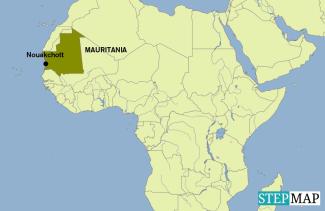Human trafficking
Deeply rooted slavery

The UN defines modern-day slavery as the “recruitment, transportation, transfer, harbouring or receipt of persons by improper means for forced labour or sexual exploitation”. There are various forms of slavery: domestic servitude, abuse in prostitution, forced or bonded labour, child labour and forced marriage.
The 2016 Global Slavery Index revealed that 46 million people were living as slaves. According to the civil-society organisation “Free the Slaves”, 70 % of the world’s slaves are trapped in forced labour and 30 % in forced prostitution.
Mauritania was the last state in the world to officially abolish slavery in 1981. But despite legal provisions, it is still prevalent in the country, according to “SOS Esclaves”, a local civil-society organisation. Slavery has existed in Mauritania for many centuries and has deep roots in social traditions.
According to the Global Slavery Index, one percent of Mauritania’s population is enslaved. The absolute number is above 41,000. Activists who campaign for the rights of the persons concerned, however, estimate that up to 20 % of the population are held as slaves. The reason for the gap between these figures is that “there are no statistics on Haratines and Afro-Mauritanians.” That is the explanation offered by Philip Alston, the UN Special Rapporteur on extreme poverty and human rights. Enslaved people often belong to these two ethnic groups. They constitute approximately two thirds of all Mauritanians and are excluded from economic and social life in many ways.
Abou is a freed slave. He is only called by this name. “I just can’t put into words the whole suffering I went through in a decade,” he recounts. He fled the house of his owner in April 2018.
Mauritanian authorities flatly deny the existence of slavery. There has been more repression against anti-slavery activists and journalists than the perpetrators of slavery practices themselves. “Human-rights defenders and anti-slavery activists were intimidated, attacked and prosecuted for their peaceful activities,” states Amnesty International’s report for 2017/2018.
In March 2018, French-Moroccan photojournalist Seif Kousmate, who was conducting research on slavery, was detained and expelled. In May 2017, the authorities expelled Marie Foray, a human-rights lawyer working with the local NGO “Initiative pour la Résurgence du Mouvement Abolitionniste”.
Mauritania is set to face strong actions from the international community. According to the US trade representative’s office, the United States will end the country’s trade benefits under the African Growth and Opportunity Act in early 2019.
Ibrahim Orèd’Ola Falola is a journalist from Lomé, Togo. He currently lives in Nouakchott, Mauritania.
ibfall2007@yahoo.co.uk
Links
Free the Slaves:
https://www.freetheslaves.net/
Initiative pour la Résurgence du Mouvement Abolitionniste:
http://www.iramauritanie.org/
SOS Esclaves:
https://www.facebook.com/SOS-Esclaves-179463132122473/?nr







